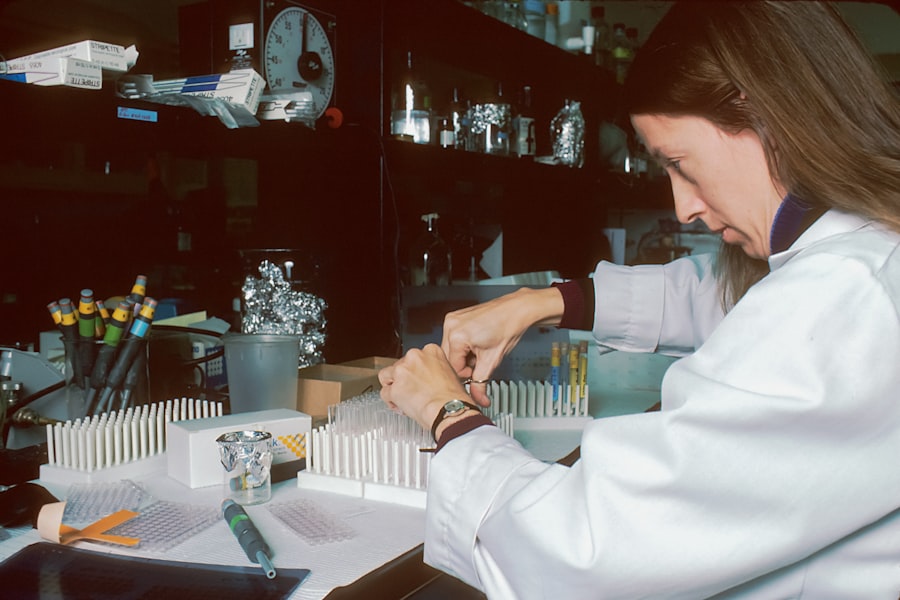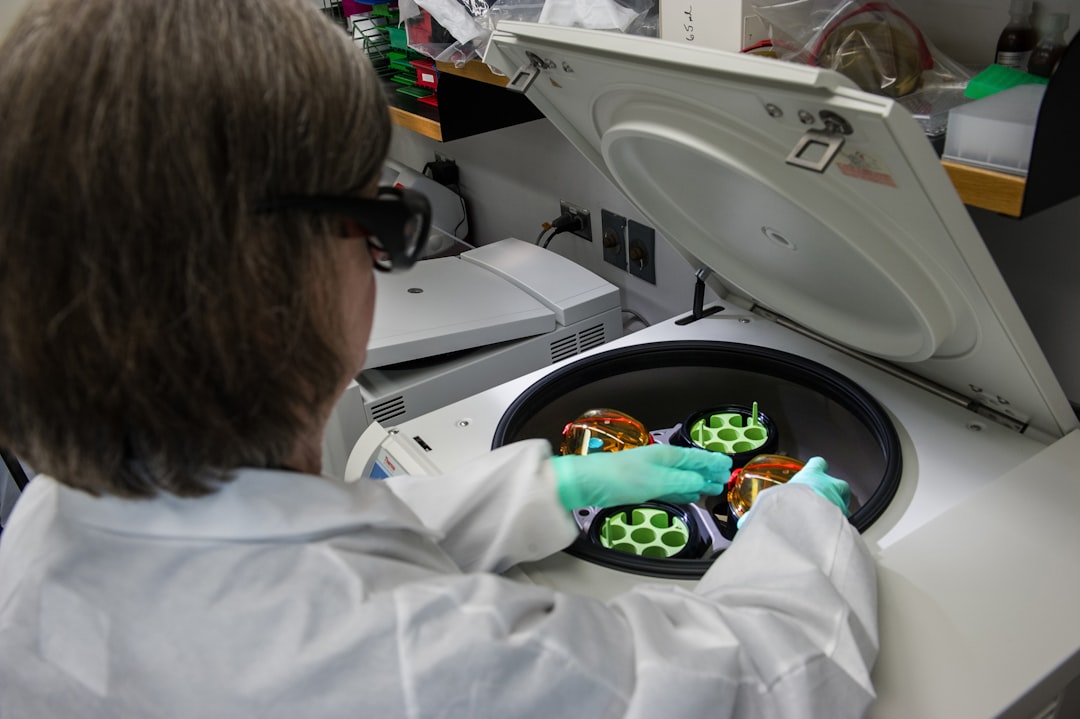As you delve into the world of bioinformatics, you will quickly discover that artificial intelligence (AI) is revolutionizing the field. Bioinformatics, which combines biology, computer science, and information technology, has long been essential for analyzing biological data. However, the advent of AI technologies has introduced new dimensions to this discipline, enabling researchers to process vast amounts of data with unprecedented speed and accuracy.
The integration of AI into bioinformatics is not merely a trend; it represents a fundamental shift in how biological research is conducted and understood. AI’s capabilities in machine learning, natural language processing, and data mining are transforming the landscape of bioinformatics. You may find that these technologies are being employed to predict protein structures, analyze genomic sequences, and even identify potential drug candidates.
As you explore this intersection of AI and bioinformatics, you will see how these advancements are not only enhancing research outcomes but also reshaping the skill sets required for professionals in the field.
Key Takeaways
- AI is revolutionizing the field of bioinformatics by enabling faster and more accurate analysis of biological data.
- The impact of AI on bioinformatics jobs is both disruptive and transformative, leading to the creation of new roles and the automation of certain tasks.
- AI plays a crucial role in bioinformatics research by enabling the analysis of large datasets, predicting protein structures, and identifying potential drug targets.
- Advantages of AI in bioinformatics include increased efficiency and accuracy, while disadvantages include the potential for bias and the need for extensive computational resources.
- The future of bioinformatics jobs in the age of AI will require professionals to adapt and acquire new skills, as well as collaborate with AI systems to maximize their potential.
The Impact of AI on Bioinformatics Jobs
The rise of AI in bioinformatics is creating a dynamic shift in job roles and responsibilities. As you navigate this evolving landscape, you will notice that traditional positions are being redefined. For instance, data analysts and biostatisticians are increasingly expected to possess knowledge of AI algorithms and machine learning techniques.
This shift means that you may need to adapt your skill set to remain competitive in the job market. The demand for professionals who can bridge the gap between biology and technology is on the rise, leading to new opportunities for those willing to embrace change. However, the impact of AI on bioinformatics jobs is not solely about creating new roles; it also raises concerns about job displacement.
As AI systems become more capable of performing tasks traditionally handled by humans, you might wonder about the future of certain positions. While some jobs may become obsolete, others will evolve, requiring a blend of biological expertise and technological proficiency. The key to thriving in this environment lies in your ability to continuously learn and adapt to new tools and methodologies.
The Role of AI in Bioinformatics Research

In the realm of bioinformatics research, AI is proving to be an invaluable ally. You will find that researchers are leveraging AI algorithms to analyze complex biological datasets, leading to insights that were previously unattainable. For example, machine learning models can identify patterns in genomic data that help predict disease susceptibility or treatment responses.
This capability not only accelerates research timelines but also enhances the precision of findings, allowing for more targeted approaches in medicine. Moreover, AI’s role extends beyond data analysis; it also facilitates hypothesis generation and experimental design. As you engage with AI-driven tools, you may discover that they can suggest novel research directions based on existing literature and data trends.
This collaborative approach between human intuition and machine intelligence is fostering a new era of innovation in bioinformatics research, where the synergy between human expertise and AI capabilities leads to groundbreaking discoveries.
The Advantages and Disadvantages of AI in Bioinformatics
| Advantages of AI in Bioinformatics | Disadvantages of AI in Bioinformatics |
|---|---|
| 1. Accelerated data analysis | 1. Potential for errors in AI algorithms |
| 2. Improved accuracy in predictions | 2. Dependence on large and high-quality datasets |
| 3. Automation of repetitive tasks | 3. Ethical and privacy concerns in data usage |
| 4. Discovery of novel patterns and relationships | 4. Lack of interpretability in AI models |
| 5. Integration of multi-omics data for comprehensive analysis | 5. Initial high cost of implementing AI technologies |
As you explore the advantages of AI in bioinformatics, it becomes clear that the technology offers significant benefits. One of the most notable advantages is the ability to process large datasets quickly and accurately. Traditional methods often struggle with the sheer volume of biological data generated today, but AI algorithms can sift through this information efficiently, uncovering insights that would take humans much longer to identify.
Additionally, AI can enhance predictive modeling, allowing researchers to anticipate outcomes based on historical data. However, it is essential to consider the disadvantages as well. One major concern is the potential for bias in AI algorithms, which can lead to skewed results if not properly managed.
Furthermore, there is a risk that over-reliance on AI could diminish critical thinking skills among researchers. Balancing the use of AI with traditional analytical methods is crucial to ensure comprehensive understanding and interpretation of biological phenomena.
The Future of Bioinformatics Jobs in the Age of AI
Looking ahead, the future of bioinformatics jobs appears promising yet challenging in the age of AI. As you consider your career trajectory, it is important to recognize that while some roles may evolve or diminish, new opportunities will emerge as well. The demand for bioinformaticians who can harness AI technologies will likely increase, particularly in areas such as personalized medicine and genomics.
You may find yourself at the forefront of this transformation, contributing to innovative solutions that address pressing health challenges. To thrive in this future landscape, continuous learning will be paramount. You should seek out training programs and resources that enhance your understanding of both biological concepts and AI methodologies.
Networking with professionals in both fields can also provide valuable insights into emerging trends and opportunities. By positioning yourself as a versatile candidate who can navigate both biology and technology, you will be well-equipped to succeed in the evolving job market.
Ethical Considerations in AI-Driven Bioinformatics

As you engage with AI-driven bioinformatics, ethical considerations must remain at the forefront of your mind. The use of AI raises important questions about data privacy, consent, and the potential for misuse of sensitive biological information. You may find yourself grappling with issues related to patient confidentiality when working with genomic data or clinical records.
It is crucial to understand the ethical implications of your work and ensure that you adhere to established guidelines and regulations. Moreover, there is a growing concern about the transparency of AI algorithms. As you utilize these tools, you should be aware of how decisions are made by machine learning models and strive for interpretability in your analyses.
Ensuring that your work is not only effective but also ethically sound will be essential as you navigate the complexities of bioinformatics in an AI-driven world.
The Skills and Training Needed for Bioinformatics Jobs in the AI Era
To thrive in bioinformatics jobs during this transformative era dominated by AI, you will need a diverse skill set that encompasses both biological knowledge and technical expertise. Proficiency in programming languages such as Python or R is becoming increasingly important as these languages are commonly used for data analysis and machine learning applications. You should also familiarize yourself with relevant libraries and frameworks that facilitate AI development.
In addition to technical skills, a strong foundation in statistics and data analysis will be invaluable as you interpret complex biological datasets. Understanding machine learning concepts will further enhance your ability to apply these techniques effectively in your research or professional work. Continuous education through workshops, online courses, or advanced degrees can help you stay current with emerging technologies and methodologies in bioinformatics.
The Potential for Collaboration Between AI and Bioinformatics Professionals
Collaboration between AI specialists and bioinformatics professionals holds immense potential for advancing research and innovation. As you engage with experts from both fields, you may find that interdisciplinary teamwork fosters creativity and leads to novel solutions for complex biological problems. By combining your biological expertise with AI knowledge from data scientists or machine learning engineers, you can tackle challenges that require a multifaceted approach.
This collaborative spirit can also extend beyond academia into industry settings where biotech companies are increasingly seeking professionals who can bridge the gap between biology and technology. You may find opportunities to work on interdisciplinary teams that develop cutting-edge tools or therapies that leverage both biological insights and advanced computational techniques.
The Role of AI in Data Analysis and Interpretation in Bioinformatics
AI’s role in data analysis and interpretation within bioinformatics cannot be overstated.
Machine learning models can identify patterns and correlations within data that might be imperceptible through traditional analytical methods.
Furthermore, AI enhances interpretability by providing insights into complex relationships among biological variables. For instance, when analyzing gene expression data, AI can help elucidate how specific genes interact with one another or respond to environmental changes. This level of analysis not only accelerates research but also contributes to a deeper understanding of biological systems.
The Integration of AI in Bioinformatics Tools and Software
The integration of AI into bioinformatics tools and software is transforming how researchers conduct analyses and interpret results. You may encounter platforms that utilize machine learning algorithms for tasks such as protein structure prediction or drug discovery simulations. These tools are designed to enhance user experience by providing intuitive interfaces while leveraging powerful computational capabilities behind the scenes.
As you explore these integrated tools, you will likely find that they offer features such as automated data preprocessing or real-time feedback on analysis results. This level of sophistication allows researchers like yourself to focus more on interpreting findings rather than getting bogged down by technical details. Embracing these advancements will enable you to work more efficiently and effectively within the bioinformatics landscape.
Navigating the Changing Landscape of Bioinformatics Careers with AI
In conclusion, navigating the changing landscape of bioinformatics careers in the age of AI presents both challenges and opportunities for professionals like yourself. As artificial intelligence continues to reshape research methodologies and job roles within this field, it is essential to remain adaptable and proactive in your career development. By embracing continuous learning and interdisciplinary collaboration, you can position yourself at the forefront of innovation.
The future holds immense potential for those who are willing to integrate their biological expertise with technological advancements. As you embark on this journey through bioinformatics enriched by AI capabilities, remember that your unique skill set will be invaluable in addressing complex biological questions and contributing to meaningful advancements in healthcare and research. Embrace this exciting era with an open mind and a commitment to ethical practices as you forge your path forward in bioinformatics careers influenced by artificial intelligence.
In the rapidly evolving field of bioinformatics, the integration of artificial intelligence (AI) is a topic of significant interest and debate. As AI technologies continue to advance, there is growing concern about the potential for these systems to replace human jobs in bioinformatics. An insightful article discussing the impact of AI on job markets, including bioinformatics, can be found on How Wealth Grows. This article explores the balance between AI’s capabilities and the irreplaceable value of human expertise in complex scientific fields. For more information, you can read the full article by visiting How Wealth Grows.
FAQs
What is bioinformatics?
Bioinformatics is the field of science that combines biology, computer science, and information technology to analyze and interpret biological data.
What is AI?
AI, or artificial intelligence, refers to the simulation of human intelligence in machines that are programmed to think and act like humans.
Will AI take bioinformatics jobs?
AI is expected to have a significant impact on the field of bioinformatics by automating certain tasks and improving data analysis. While AI may change the nature of some bioinformatics jobs, it is also likely to create new opportunities and roles within the field.
How will AI impact bioinformatics jobs?
AI is expected to streamline data analysis processes, improve accuracy, and enable the handling of larger and more complex datasets. This may lead to a shift in the types of tasks bioinformaticians perform, but it is also likely to create new job opportunities in AI-driven bioinformatics research and development.
What skills will be important for bioinformaticians in the age of AI?
In addition to traditional bioinformatics skills, bioinformaticians will need to develop expertise in AI and machine learning techniques. This may include programming, data analysis, and a deep understanding of biological systems and processes. Adaptability and a willingness to learn new technologies will also be important.
